After the Ball at Upstairs at the Gatehouse
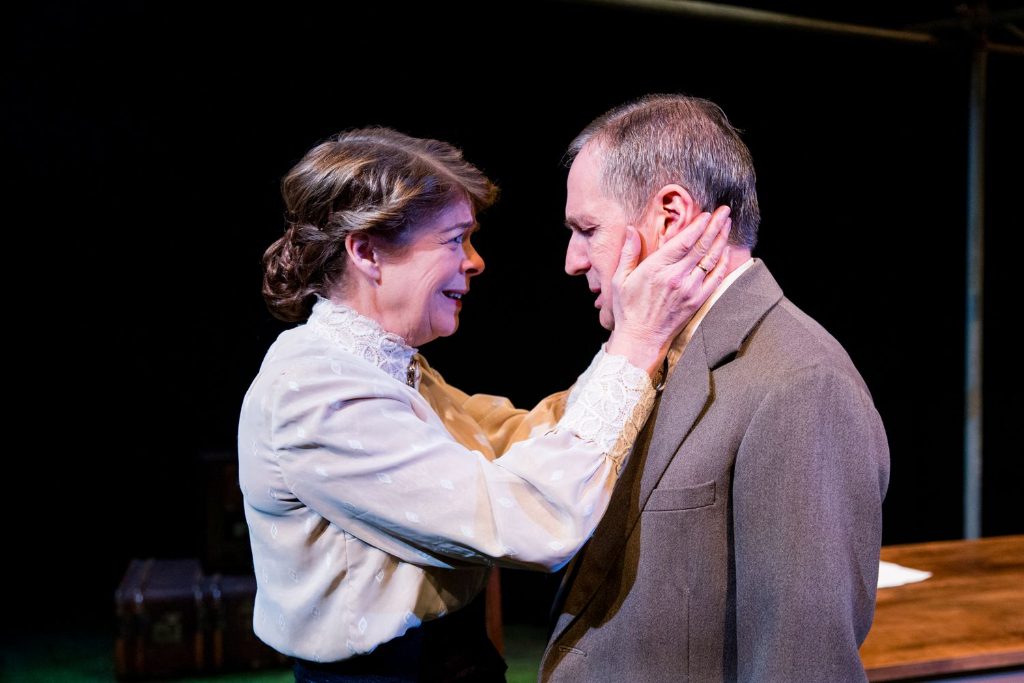
100 years ago, the United Kingdom fought side by side with other European countries in one of the most violent and irrational global turmoils of all time. The First World War marked the future of soldiers and their families – not only in terms of military involvement but also with regards to the personal and social choices of the people in the trenches and at home. After the Ball – by Ian Grant – delves into the memories and ripple effects of the actions of one couple, exploring their sentiments and affections – both towards their country and towards each other. Director Nadia Papachronopoulou’s new production of the play is a pleasure to witness; it stands out for its fresh and human take on a subject recurrently looked at from a distance – both temporal and emotional –, focusing on a family’s drama without aiming to necessarily draw tears, but rather to explore the social dynamics involved.
William (Stuart Fox) and Blanche (Julia Watson) get married soon after meeting for the first time at a ball. They both hold a peaceful stance at the dawn of the war: while she fights for the rights of women to vote, he is active in the events and meetings of a socialist union. However, as the conflict rages on their doorstep, William’s decision to volunteer for the army cracks their relationship. Blanche raises their daughter alone for the first two years while her husband is in Belgium allegedly helping in the trenches. Upon his return, society changes – and so too do family life and his wife’s sentiments.
The acting of the six members of the cast – which consists of an equal number of female and male performers, as the play also celebrates the parity of the sexes – is utterly compelling. Watson brilliantly rises to the challenge of a slow and incomplete emancipation. Although relegated at home, the heroine gains her own independence – at least intellectual – with her way of speaking changing over time. However weak she appears upon first entering the stage, the woman is indeed the strongest of the group, sacrificing herself for the sake of her family and holding onto her values of loyalty and peace – despite the betrayal and lack of care from her relatives. Juggling with multiple parts, Elizabeth Haeley likewise proves to be a first-class actress, one who can masterfully shift in between rather different roles.
With a script so well crafted, the development of the characters is refined. Though memories start to overlap with modern events at the beginning of the play, the expectations of a confusing plot are immediately turned down by swift and even changes. The setting and the costumes of the two main performers remain the same throughout After the Ball, however the movements in space and time are dictated by soft lights and background sounds that do not overwhelm the sequences, but subtly denote the shifts.
Cristiana Ferrauti
Photo: Mitzi de Margary
After the Ball is at Upstairs from 7th March until 24th March 2018. For further information or to book visit the theatre’s website here.

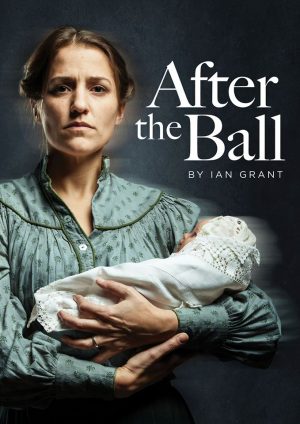
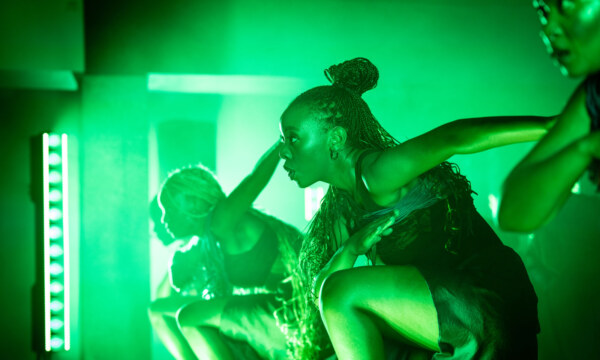
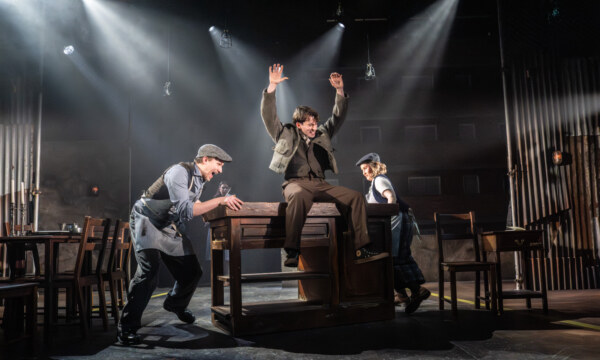
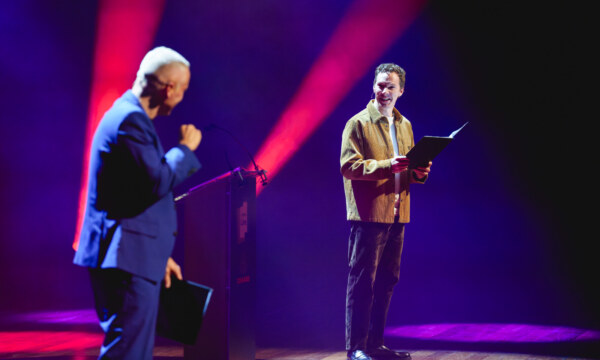
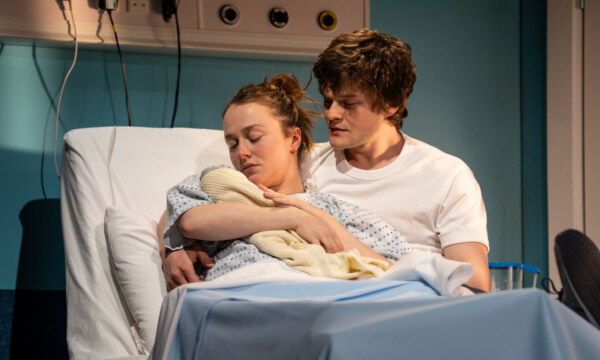
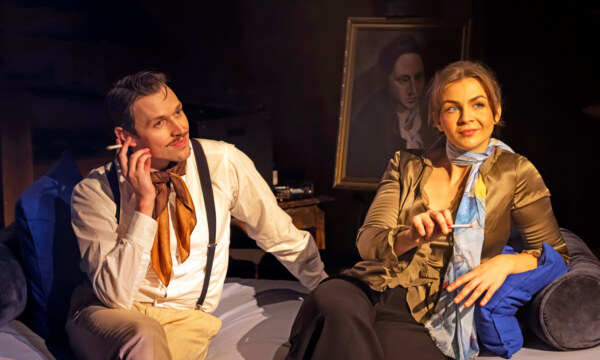


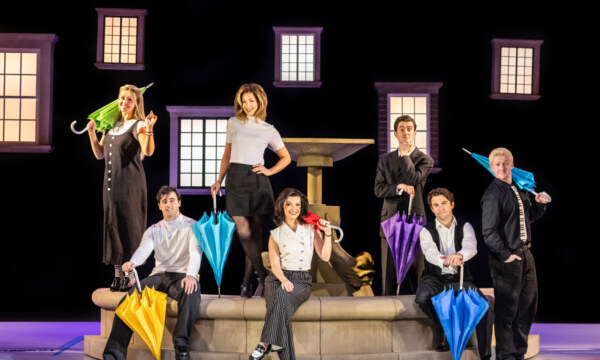
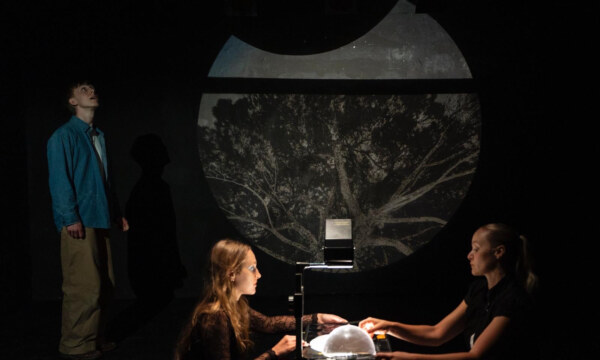
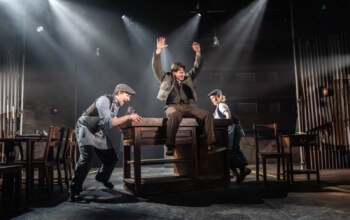

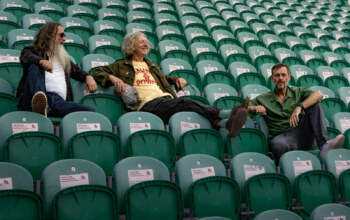









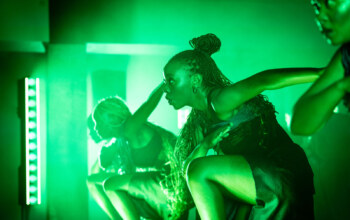

Facebook
Twitter
Instagram
YouTube
RSS